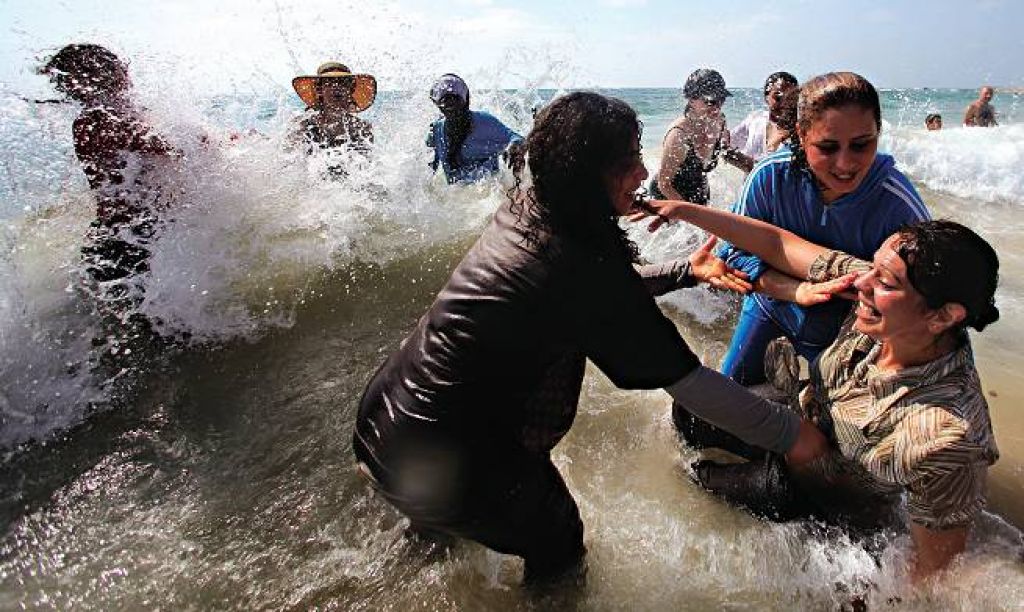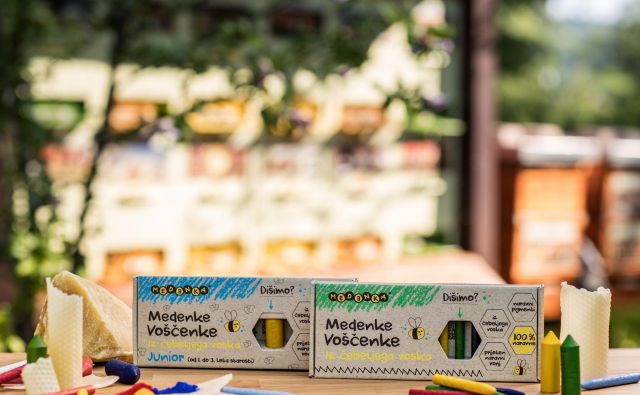TEL AVIV - Skittish at first, then wide-eyed with delight, the women and girls entered the sea, smiling, splashing and then joining hands.
Most had never seen the sea before. They were Palestinians from the southern part of the West Bank, which is landlocked, and Israel does not allow them in. They risked criminal prosecution, along with the dozen Israeli women who took them to the beach. And that, in fact, was part of the point: to protest what they and their hosts consider unjust laws.
The illicit trip was a rare event that joined the simplest of pleasures with the most complex of politics. It showed why coexistence here is hard, but also why there are, on both sides, people who refuse to give up on it.
"What we are doing here will not change the situation," said Hanna Rubinstein, who traveled to Tel Aviv from Haifa to take part. "But it is one more activity to oppose the occupation. One day in the future, people will ask, like they did of the Germans: ‘Did you know?' And I will be able to say, ‘I knew. And I acted.'"
Such visits began a year ago as the idea of one Israeli, and have blossomed into a movement of civil disobedience.
Ilana Hammerman, a writer, had been spending time in the West Bank learning Arabic when a girl there told her she was desperate to get out, even for a day. Ms. Hammerman, 66, a widow, decided to smuggle her to the beach. The resulting trip, described in an article she wrote, led to the creation of a group called We Will Not Obey. It also led a rightwing organization to report her to the police, who questioned her.
In a newspaper advertisement, the group of women declared: "We cannot assent to the legality of the Law of Entry into Israel, which allows every Israeli and every Jew to move freely in all regions between the Mediterranean and the Jordan River while depriving Palestinians of this same right."
The beach trip in mid-July followed a pattern: the Palestinian women went in disguise, which meant removing clothes. They sat in the back seats of cars driven by middle-aged Jewish women and took off headscarves and long gowns. As the cars drove through an Israeli Army checkpoint , everyone just waved.
Israel's military, which began limiting Palestinian movement into Israel two decades ago to prevent terrorism, issued about 60,000 permits for Palestinian visits to Israel this year, twice last year's number but still a token amount for a population of 2.5 million.
The Palestinian visitors came with complicated histories. For example, Manal, who had never been to the sea before, is 36, the mother of three and pregnant; five of her brothers are in Israeli prisons, and another was killed when he entered a settler religious academy armed with a knife.
She brought with her an unsurprisingstridency. "This is all ours," she said in Tel Aviv.
In the course of the day her views seemed to grow more textured - or less certain - as she found comfort in the company of Israeli women who said that they, too, had a home on this land.
The beach trips - seven so far - have produced some tense moments. An effort to generate interest in a university library fell flat. And at a predominantly Jewish beach, a policeman made everyone nervous.
So, on this latest visit, the selected beach was one in Jaffa that is frequented by Israeli Arabs.
Dinner was a surprise. Hagit Aharoni, the wife of the celebrity chef Yisrael Aharoni, is a member of the organizing group, so the beachgoers dined on the roof of the Aharonis' home, five floors above stylish Rothschild Boulevard. They lighted cigarettes - something they cannot do in public at home - and put on joyous Palestinian music. As the pink sun set over the Mediterranean, they danced with their Israeli friends.
Ms. Aharoni said: "For 44 years, we have occupied another country. I am 53, which means most of my life I have been an occupier. I don't want to be an occupier. I am engaged in an illegal act of disobedience."
 Tiskane izdaje
Tiskane izdaje























